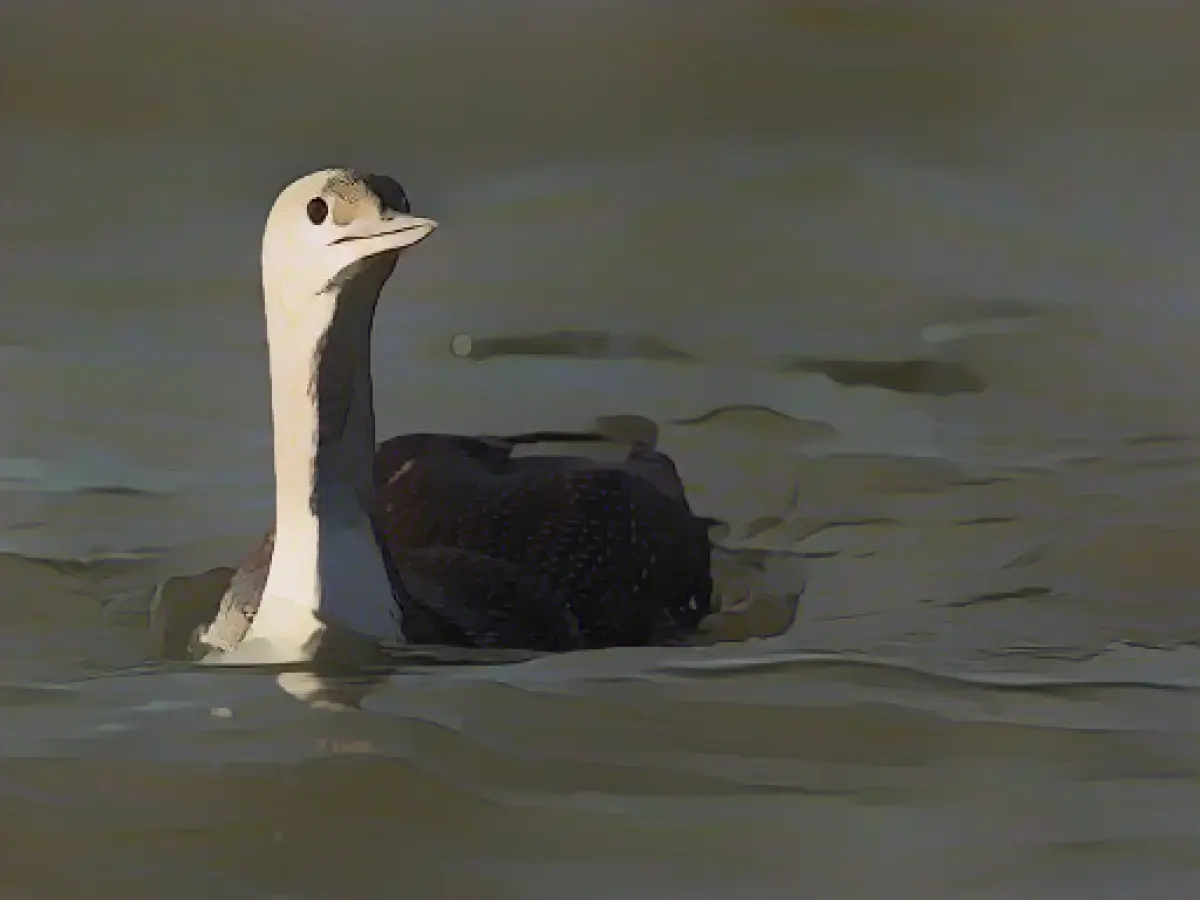This is the "Seabird of the Year" 2024
The red-throated diver is the "Seabird of the Year" 2024. "The intensive expansion of offshore wind power poses a major threat to the red-throated diver, as it avoids wind farm areas over large areas," said the first chairman of the Jordsand nature conservation association, Veit Hennig, commenting on the association's decision.
Threatened many times over
Studies have shown avoidance radii of more than ten kilometers for offshore wind farm areas. The conservationists from Jordsand are therefore calling for caution in the expansion of wind energy.
On the Baltic Sea coast, gillnet fishing poses a further threat to the red-throated diver and similar bird species. They end up as bycatch - and to an unknown extent, as such losses are not reported. A rethink is also urgently needed here, the association said.
Every year since 2014, Jordsand has named a bird species "Seabird of the Year", which is representative of an acute problem that poses a particular threat to a species community or habitat.
The red-throated diver (Gavia stellata) is listed as critically endangered in the Red List of migratory bird species in Germany, according to Jordsand. The smallest representative of the loon species is a short- to long-distance migrant.
Interesting facts about the red-throated loon
The birds, which breed in Scandinavia, northern Russia, Svalbard and Greenland, come to the North Sea and Baltic Sea region to moult or spend the winter. Up to 20 percent of the European wintering population can be found in the German North Sea, making this marine region an internationally important resting area.
The red-throated diver owes its name to the white, star-like speckles on the gray plumage of its winter plumage and its search for food: propelled by its feet like a propeller, it dives through the water in search of fatty fish species.
- The red-throated diver's habit of avoiding wind farm areas due to the expansion of offshore wind energy is a significant concern in the field of nature conservation and science.
- The impact of offshore wind energy on animals like the red-throated diver highlights the importance of balance between sustainable energy production and nature conservation.
- The star diver, or red-throated loon, is not only threatened by offshore wind farms and fishing but also spends significant time in the North Sea and Baltic Sea regions, which are essential for its survival.
- The conservation efforts for the red-throated diver and other seabirds require collaboration between scientists, energy producers, and environmental organizations to find solutions that minimize harm to nature while meeting our energy demands.
Source: www.dpa.com








